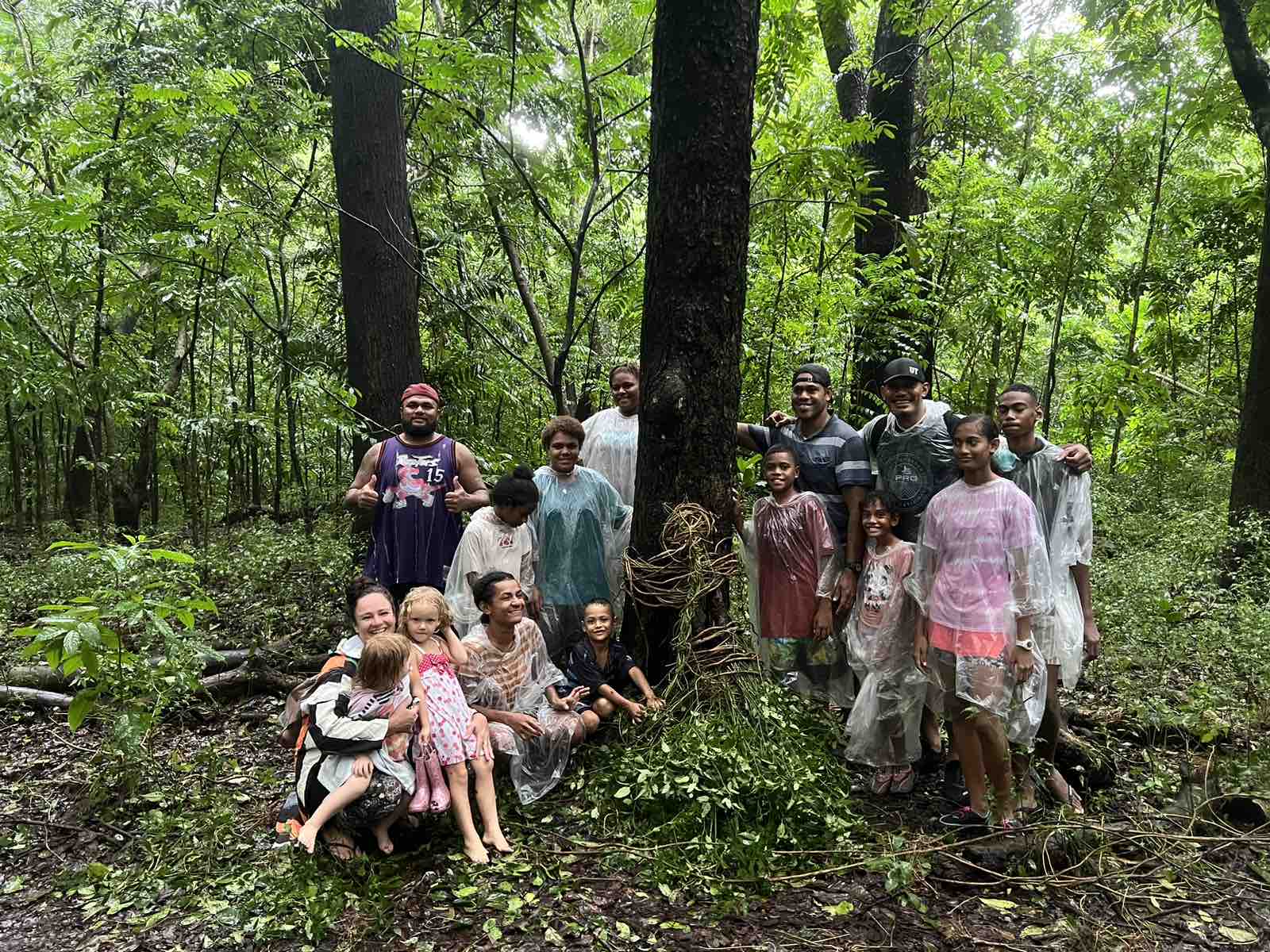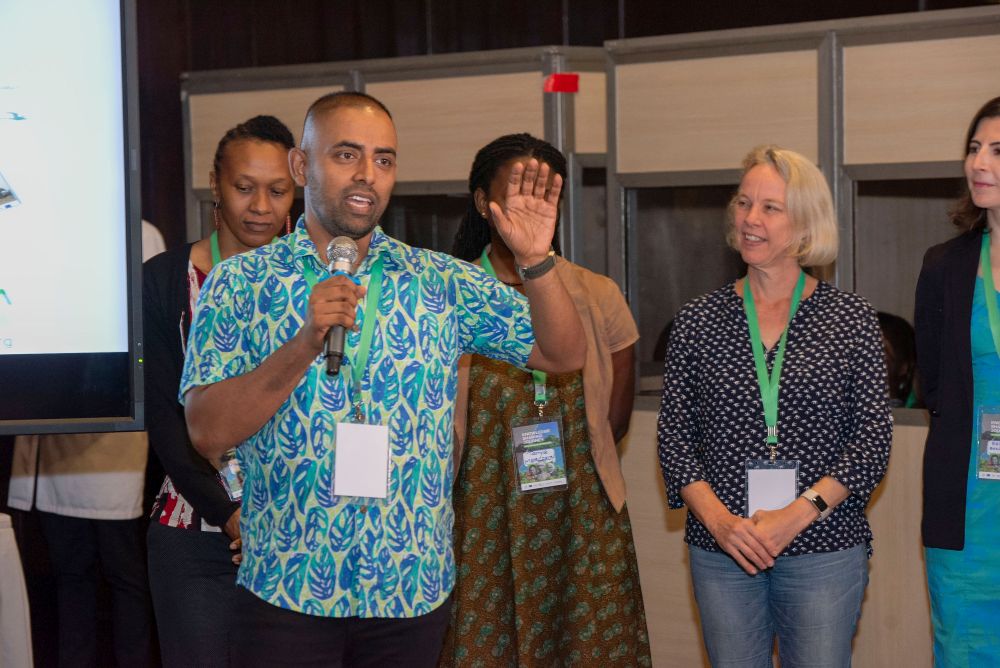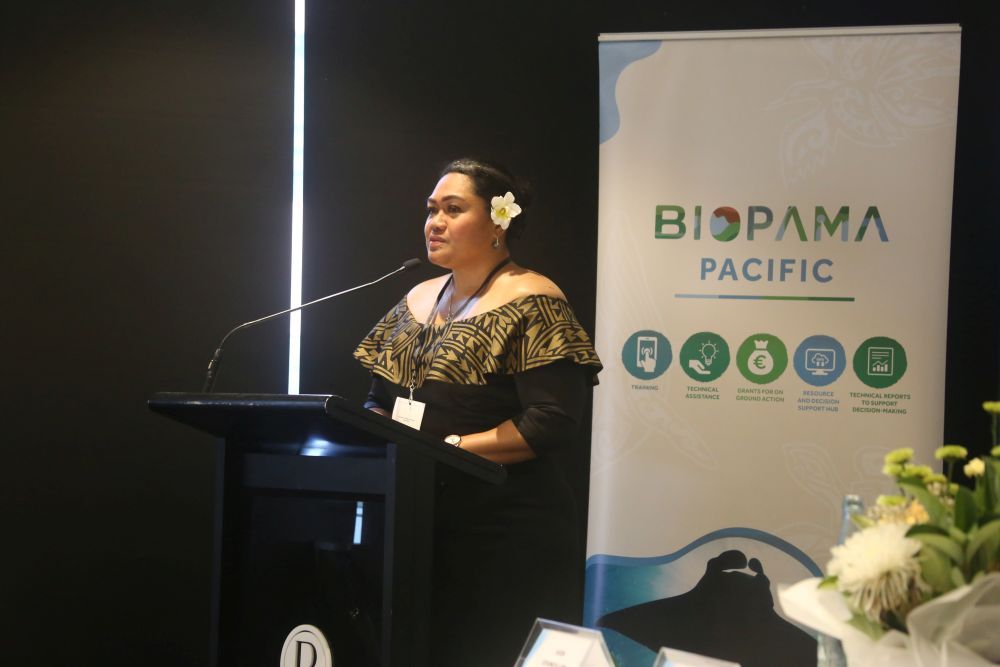16 women receive high accolades for their contribution to waste management in Fiji
Sixteen women from Lautoka and Suva in Fiji were part of a week-long workshop that was aimed at empowering women in the informal waste sector.
The workshop consisted of a gender, human rights and violence against women training by Fiji Women’s Crisis Centre (FWCC), literacy program by Bank of the South Pacific (BSP), an awareness program and free cancer checks and medical screening by Fiji Cancer Society and a round table talk on women and their role in plastic waste management by IUCN. Waste Recyclers Fiji Ltd (WRFL) initiated the workshop in partnership with Fiji Women’s Crisis Centre and IUCN through the Plastic Waste Free Islands (PWFI) Project.
Dr James Fong, Fiji’s Permanent Secretary for the Ministry of Health officially opened the workshop. He commended the 16 women for their contribution to protecting the environment and their resilience in the face of name-calling, judgement and abuse driven by the stigma associated with the waste picking trade. Dr. Fong also praised the continuous efforts of such workshops to remove the stigma.
Participant, Asinate Lewabeka of Vunato settlement, Lautoka has been working as a waste picker for over 23 years and shared that despite the scorn and ridicule, she persevered and supported her 6 children and grandchildren including Fijiana Rugby 7s Olympic bronze medalist Lavena Cavuru in her rugby career.
60-year-old mother of 6, Lisi Namole also expressed her appreciation for being part of the workshop and was grateful for her job as a waste collector despite the negative opinions from her family members. Ever since her husband was sent to prison, waste picking has been a reliable source of income for her family.
Similarly, 30-year-old single mother Losana Naivala shared that the income generated from waste picking supplements her income from selling sasa brooms and was grateful for the opportunity to be part of the workshop that would help her better support her family.
WRFL is a leading recycling and waste management company in Fiji that has established strong links with informal waste pickers during their 28 plus years of operation. CEO of WRFL Mr. Amitesh Deo realized the need for such a workshop during the COVID-19 nationwide lockdown in Fiji while his team was assisting the women in informal waste picker communities. WRFL noted the high levels of domestic violence and abuse cases prevalent in the community which wasfurther exacerbated by the stigma attached to the work the women were doing. “Hence a strategy to effectively assist female waste pickers who are major custodians of the environment is by empowering them” -as highlighted by Shamima Ali, FWCC coordinator on the first day of the workshop.
Fiji’s Department of Environment Director, Sandeep Singh in her opening remarks shared “I’m proud to say that the work you do also saves spaces of landfill and dump sites thus ensuring their longevity and reduces greenhouse gas emissions by limiting the amount of unnecessary waste ending up in our landfills and dump sites and into the environment, the ocean…your efforts in collecting and sorting waste at collection points play a huge role in ensuring that recyclable waste reaches recycling facilities and wastes are properly managed”
Mr. Paula Katirewa, PWFI Project coordinator conducted a round table discussion in the Itaukei language and shared with the women the very significant role that informal waste sector workers play in the circular economy paradigm of the plastics value chain. In countries characterized by not-so-robust waste management systems, the informal sector plays a critical role in the recycling value chain, especially with regard to plastic waste by collecting plastic waste that would otherwise be leaked into the environment. As part of the roundtable discussions the participants were given questionnaires relating to gender and inclusion in the workforce; gender roles, responsibilities and barriers for equal participation along the value chain and, gender analysis of the national policy/regulations and institutional frameworks and infrastructure. The top recommendations from the women through these questionnaires based on their current needs were;
- Make available personal protective equipment (PPE) including safety boots, hand gloves, hats, raincoats and first aid kits to support their work.
- Make available transportation to transport recyclable PET bottles to the Coca cola factory
- Increase the number of items that can be recycled to include cans, copper, aluminum etc.
Mr. Katirewa also shared statistics from studies indicating that the informal waste sector is responsible for the collection of as much as 20% of recyclables that are collected in total and sometimes contribute as high as 80% in some parts of the world. Mr. Katirewa also mentioned that informal waste workers are at the bottom of the recycling hierarchy which makes them the most vulnerable within this chain and being a woman in this sector further exacerbates this vulnerability, however, women bring additional value to the plastics value chain as they have the capacity to influence plastics waste management at the domestic and family level. Empowering women will also strengthen their role in educating the community and spearheading recycling and waste management initiatives.
Fiji’s Minister for Agriculture, Waterways and Environment Dr. Mahendra Reddy officiated the closing of the workshop where the women were accorded a graduation ceremony to acknowledge their participation.
Long-time waste picker Asinate Lewabeka conveyed thanks on behalf of the participants in a very moving speech saying “Au rawa ni tukuna ena mataka vinaka nikua ni vaka keimami vakayacora tu na cakacaka qo vaka keimami beci tu …io ni au qai mai raica na mataka vinaka nikau ni na ka saraga ya keimami mai tabaki tu vaka e dua na lesilesi levu” (I can say today that the work that we do is looked down upon but it is because of our work we have received much praise).
Also present as guests were IUCN Oceania Regional Director Mr. Mason Smith and FWCC Shelter Manager and Community Educator Ilisapeci Veibuli who facilitated the empowerment training. Dr. Reddy highlighted the need to move away from the term ‘Waste pickers’ for a group of people that are doing invaluable work that benefitted the country as a whole and recommended a more apt term ‘environmental guardians’. Mr. Amitesh Deo of WRFL also delivered his closing remarks and called on media organsiations, donor agencies and civil society organsiations to stop regarding informal waste pickers as “disempowered people” but to instead acknowledge and address their need for support structures. Mr. Deo also conveyed his thanks to IUCN for their continuous support to WRFL’s efforts towards better waste management.
IUCN through the PWFI project supports this initiative as it aligns with the objective of ensuring that solutions developed through the PWFI project to reduce plastic pollution advance women’s empowerment and gender equality. These solutions include recycling plastics such as PET, HDPE and LDPE plastics which have been identified through the PWFI project as the more common plastic types leaked into the environment here in the Oceania region. There is also the need for more work in the region in terms of establishing how gender roles determine the way stakeholders work with plastics; to better understand the dynamics of the workforce involved in plastics and plastic waste sectors along the value chain and the barriers for equal participation along the plastics value chain, as well as analysing national policy/regulations and institutional frameworks. The willingness of the 16 women to participate in this exercise is a vital first step towards filling the gap in our understanding of gender roles, responsibilities and barriers within the vision of a circular economy for plastics in Fiji and in the region. This empowerment workshop has enhanced their skills that would directly and positively impact relationships with key actors in the plastics value chain, in collection of recyclables, recycling and their role in the transition to a circular economy for plastics.
Ultimately the outcomes from the PWFI project will be incorporated into an approach that uses the learnings from the project countries to develop a blueprint that essentially is a framework that can be used and promoted based on the unique conditions of the PWFI project countries, and can be used to guide other countries in a similar context particularly Small Island Developing States (SIDS) address the complex and cross-cutting issue of plastic waste management.
Implemented in the Pacific in Fiji, Samoa and Vanuatu, the PWFI project is initiated by the IUCN, International Union for Conservation of Nature with funding from the Government of Norway to support the work on addressing the problem of plastic waste leakage from island states.
-----------------------
By Varea Romanu, Climate Change Programme Assistant



